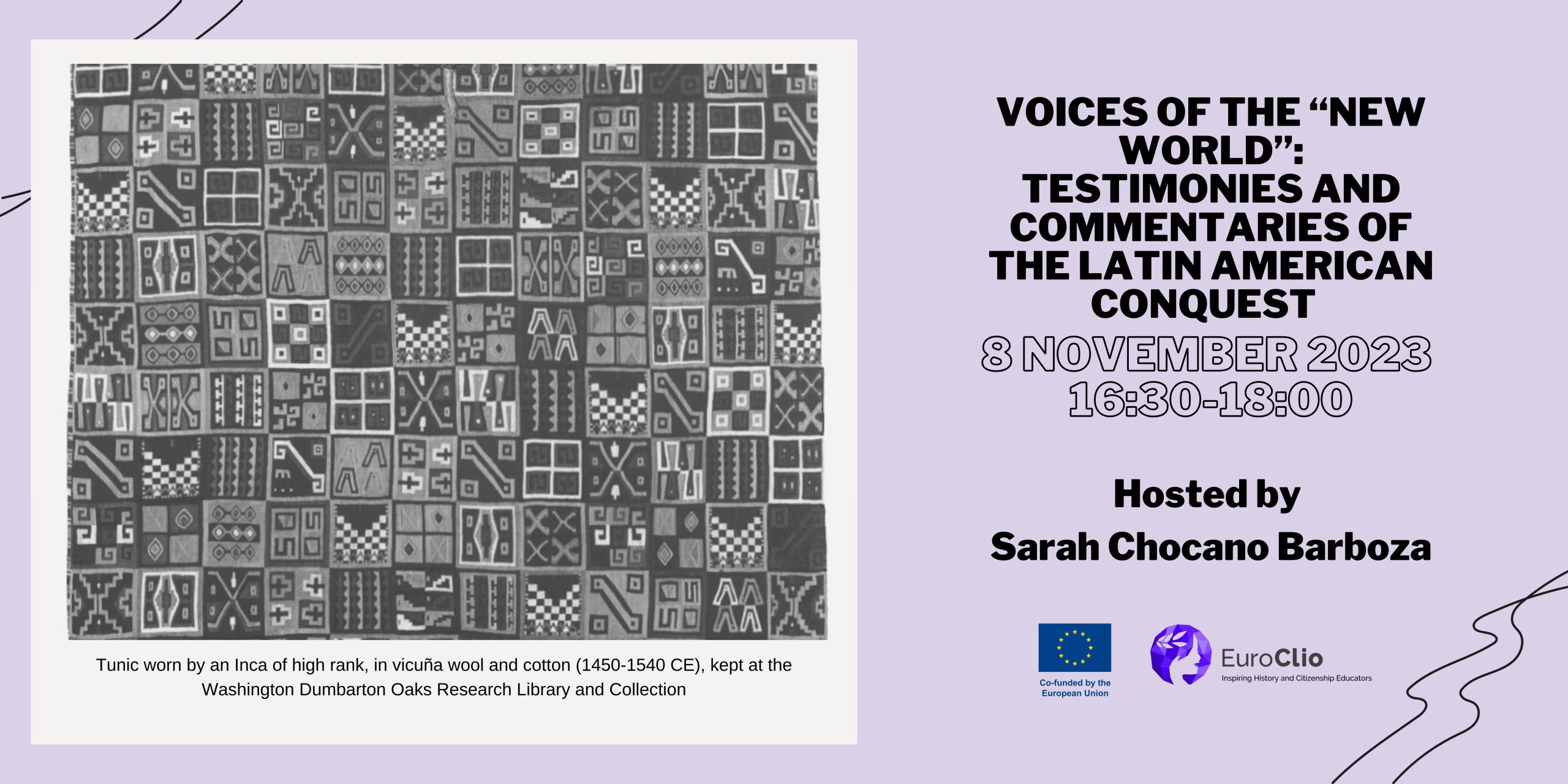About the topic
Well-known historical texts, such as the late 17th-century chronicles of the newly established viceroyalties of Mexico and Peru, have remained the primary sources for establishing a long-lasting Eurocentric perspective regarding the representation of the Indigenous peoples across the Americas. This lecture will provide an overview of Latin America’s colonial period to illuminate diverse regional voices, such as the Inca Garcilaso de la Vega, that respond to the Spanish and Portuguese occupation of their lands. These histories should provide a better understanding of the societal tensions that emerged during the colonial period and that continue to shape the region’s economic, political, social, and cultural realities.
Our Host
The webinar will be hosted by Sarah Chocano Barboza, a second-year PhD student at the University of Toronto’s Department of Geography and Planning. Her research lies at the intersection of urban geographies, intercultural education and Mapuche activism. This research looks to understand how Mapuche affective ties to educational spaces—through memories of the past and articulations of the future—shape Chilean urban landscapes. Sarah has also gained professional experience within the educational sector as a history department assistant, and humanities tutor. Currently, she hosts and produces El CafeciTO, the podcast of the Latin American Studies program at the University of Toronto’s Spanish and Portuguese Department.
In the wider context
This webinar will be the second of a series of four monthly sessions on the history of Latin America, held in the fall of 2023. Other sessions in the series will cover:
- 19 September 2023: Pre-colonial civilisations and people of Latin America – the recording will be made available to EuroClio Members soon!
- 22 November 2023: Independence and Decolonisation in Latin America: The case of Paraguay, 1800-1870
- 14 December 2023: Latin American history from the independence until today
You can register to these sessions individually for a fee of 10 EUR, or register to the whole series for a fee of 20 EUR.
Participation to the webinar series is free of charge for our members. Click here to learn more about how to become a member!



